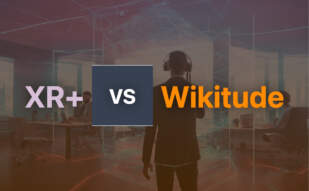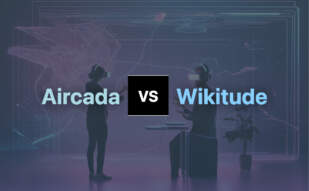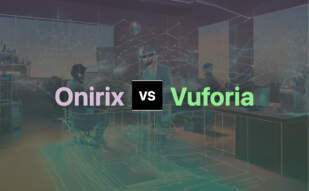For a more versatile and advanced AR experience, turn to Vuforia. Its powerhouse set of features cater to serious developers and industry professionals, supporting a range of target types and platforms. Simpler applications or companies more focused on location-based AR can find a solid foundation in the accurately tracked and simpler-to-use Wikitude.
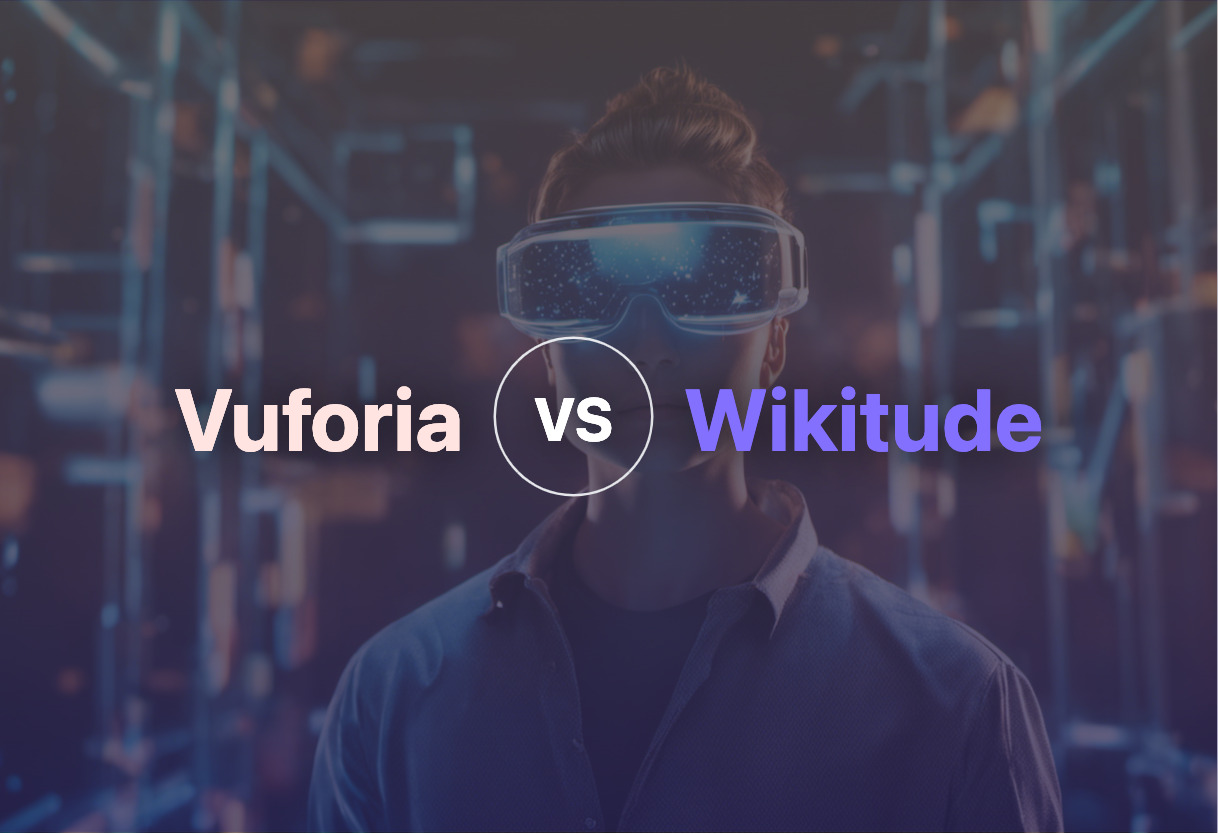
Key Differences Between Vuforia and Wikitude
- Vuforia allows recognition of various 2D/3D targets, while Wikitude’s core strength lies in image recognition and tracking with geolocation.
- Vuforia offers a more extensive compatibility with AR headsets/glasses as well as Android, iOS, and UWP. Wikitude supports Android, iOS and Windows OS.
- While both have impressive object tracking capabilities, Vuforia distinguishes itself with features like VuMarks and localized occlusion detection, unavailable in Wikitude.
- Wikitude might face debate around whether their location-based AR truly qualifies as AR, given attribute dependencies. There’s no such ambiguity with Vuforia.
| Comparison | Vuforia | Wikitude |
|---|---|---|
| Initial Release | 2010 | 2008 |
| Creator | Qualcomm, Acquired by PTC Inc. in 2015 | Salzburg, Austria, Acquired by Qualcomm in 2021 |
| SDK Features | Computer vision, object recognition, supports 2D/3D target types, localized occlusion detection, runtime image target selection | Image recognition & tracking, 3D model rendering, video overlay, location-based AR and SLAM (Simultaneous Localization And Mapping) |
| Compatible OS | iOS, Android, UWP | Android, iOS, Windows OS |
| AR Application | AR Digital Twin, bridging physical and digital spaces | location-based AR, object recognition and tracking |
| Key Benefits | VuMarks, dynamic recognition, targetting options,creative empowerment | High-end image tracking, cylinder tracking, object tracking, multiple trackers, standalone use or alongside native AR frameworks, extensible AR experiences |
| Compatible Platforms | Unity, Android Studio, Visual Studio, XCode | Optimized for smart eyewear devices, AR-friendly platforms and standalone |
| Latest Versions | Vuforia Engine 10.18 with bug fixes, performance improvements | SDK 9.0 Expert Edition, Professional Edition with broad framework choice |
What Is Vuforia and Who’s It For?
Vuforia is an AR software development kit (SDK), with its origins in Qualcomm and now owned by PTC Inc. since 2015. With its notable focus on AR Digital Twin technology, it aims at closing the gap between physical and digital spaces. It’s meant for developers looking to tap into its unique computer vision technology for object recognition.
With wide-ranging support for various programming languages and compatibility with iOS, Android, and UWP, Vuforia is truly a global versatile platform. It’s utilized by over 800k developers across applications like 3D product demonstrations and interactive campaigns.

Pros of Vuforia
- Wide range of functionality including 2D/3D target types, localized occlusion detection, runtime image target selection.
- Compatible with various AR headsets/glasses.
- VuMark: next-gen QR code with custom design support.
- A database for remote target image storage.
Cons of Vuforia
- Cloud add-ons aren’t available in China.
- Future removal of Virtual Buttons feature.
- Minimum support for Unity is version 2022.3.5f1+.
What Is Wikitude and Who’s It For?
Launched in 2008, Wikitude began as a vehicle for location-based AR experiences through its World Browser App. Now under Qualcomm’s aegis, it has emerged as a versatile SDK offering image recognition & tracking, 3D model rendering, video overlay, location-based AR, and SLAM. It is tailored for developers who desire a comprehensive AR solution.
The Wikitude SDK is compatible with Android, iOS, and Windows OS and is optimized for smart eyewear devices. It’s been tested and approved by over 20 AR-specializing agencies and touted as 2017’s Best Developer Tool at the Augmented World Expo.
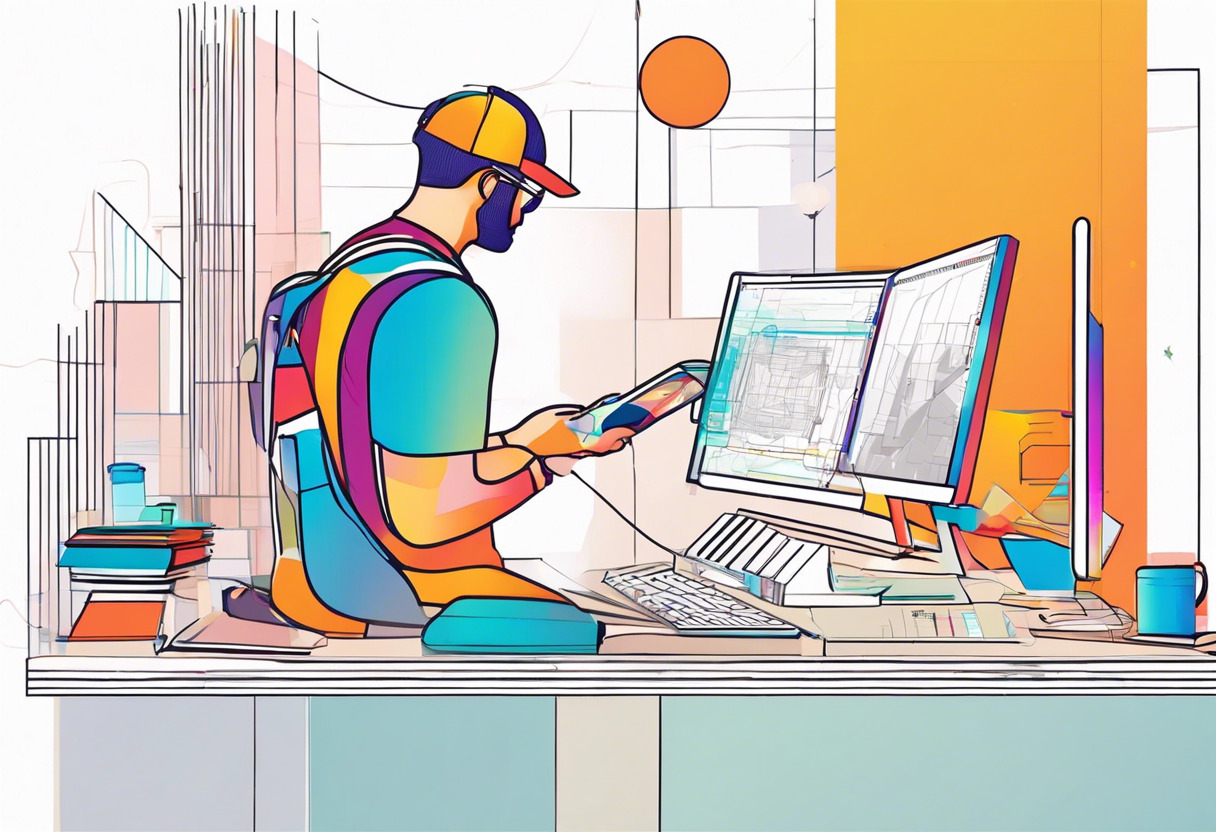
Pros of Wikitude
- Offers varied AR functionality including high-end image tracking, and support for AR Foundation from Unity.
- Can be used with external native AR frameworks like ARKit, ARCore or standalone.
- SDK facilitates complex AR experiences with multiple object tracking.
- Updated Professional Edition that supports several AR features and broad framework choice.
Cons of Wikitude
- Some controversy exists regarding Wikitude’s location-based AR due to accuracy concerns related to GPS, compass, and motion sensor.
- Dependence on user’s GPS/Wi-fi position for location-based AR.
The Final Say: Vuforia or Wikitude?
Let’s cut to the chase and decide which AR SDK is the best fit for your specific needs.
Developers Seeking Platform Variety and Flexibility
For developers eyeing platform diversity and flexibility, Vuforia takes the edge with its compatibility across Unity, Android Studio, Visual Studio, and XCode platforms. It provides superior interoperability with AR glasses/headsets and supports APIs in core programming languages including C++, Java, and .NET for Unity. Implicitly, Vuforia promises more dexterity and customization.

AR Creators Craving for Advanced AR Features
With advanced SLAM and Markerless Instant Tracking technology, Wikitude stands out for AR creators aspiring for intricate AR experiences. Its major triumph lies in its ‘SDK 9.0 Expert Edition’ which holds the capability of multiple object tracking in challenging environments, which is a significant milestone for sophisticated AR development.

Small Businesses wanting Basic AR Apps
Vuforia’s Basic Plan is an ideal choice for small businesses aiming to build basic AR applications without a watermark. It provides a cost-effective solution, allowing unlimited app development and publication, with various target functionalities.

Between Vuforia’s extensive compatibility and Wikitude’s specialized AR features, the best choice largely depends on your intended use case. If you’re an AR developer requiring platform flexibility, opt for Vuforia. In contrast, for advanced AR experiences, Wikitude reigns superior. But for simple, cost-effective AR applications, Vuforia makes a compelling case.
Logan Bellbrook
Content writer @ Aircada with a knack for nature & AR/VR/XR. Blogging the intersection of tech & terrain.



